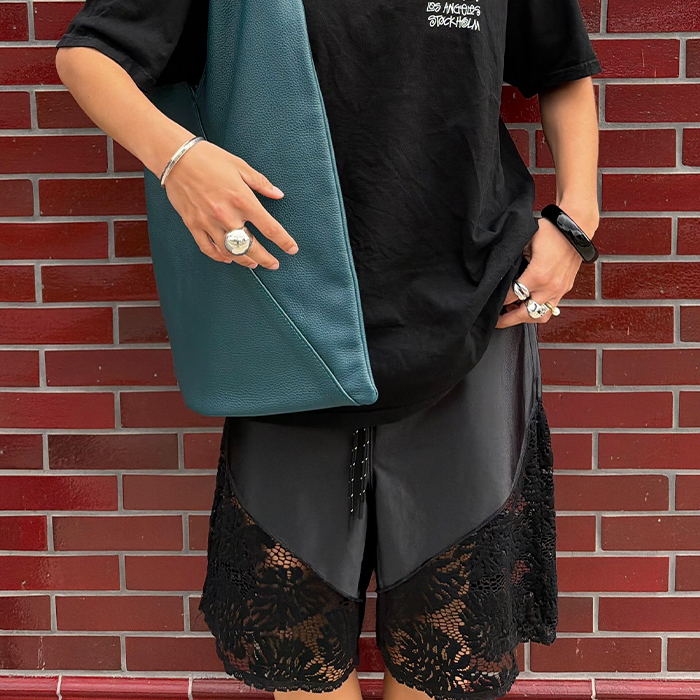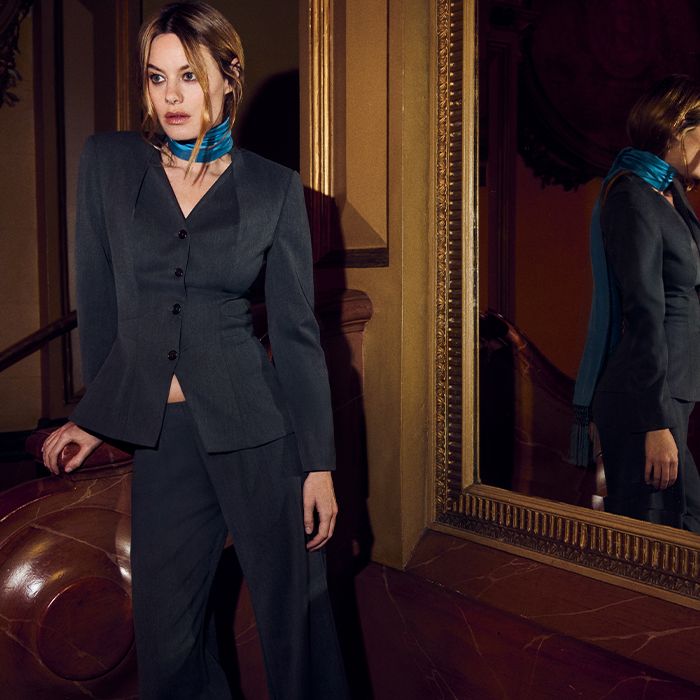Derms Agree: These Are the 10 Best After-Sun Products to Repair Summer Skin
So many French pharmacy faves.


I'm a self-confessed beach bum. Every summer, I spend hours upon hours lying on the sand and swimming in the water. I apply (and reapply) the best mineral sunscreen I can find, and I seek shade when I can. Still, I always seem to end up with dehydrated skin—the kind that feels tight and warm to the touch. It's not a sunburn, per se; it's just the effect of being outside for an extended period of time.
After the beach, I apply moisturizer and maybe even a body oil, but I've always been curious about after-sun products. I'm not talking about the big blue bottles of aloe vera gel at the drugstore. I'm talking about sophisticated skincare formulas that are packed with good-for-skin ingredients like vitamins and antioxidants. They sound good in theory. I mean, who wouldn't want to hydrate, soothe, and cool their skin after spending a long day in the sun? Yet I was skeptical. What makes them different from other skin products? Are they actually worth the money? To answer these questions, I reached out to three dermatologists. Keep scrolling to get their expert opinions. But first, check out the best after-sun products.
The Best After-Sun Products, at a Glance
- Coola Radical Recovery Eco-Cert Organic After Sun Lotion
- Sun Bum After Sun Cool Down Lotion
- Avène Cicalfate+ Restorative Protective Cream
- La Roche-Posay Thermal Spring Water Mist
- Seven Minerals Aloe Vera Gel 99% Organic
The 10 Best After-Sun Products of 2025
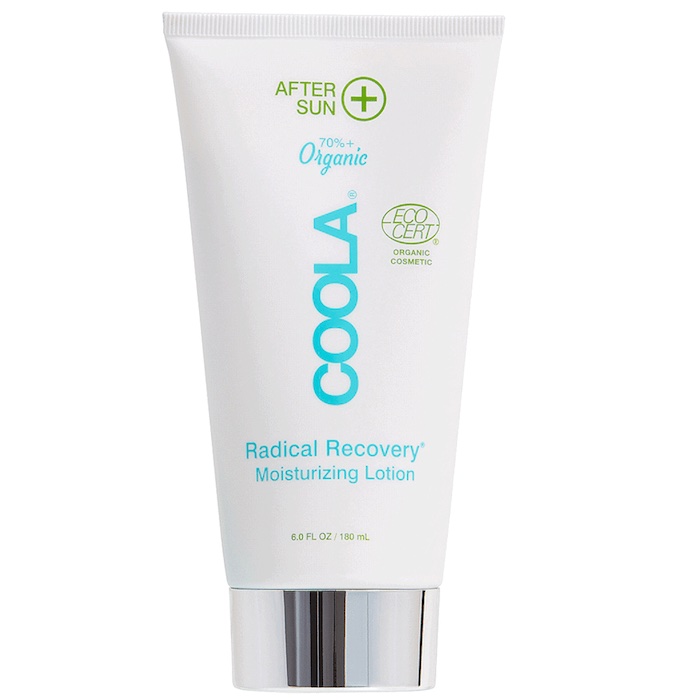
Dermatologists Blair Murphy-Rose, MD, FAAD; Marisa Garshick, MD, FAAD; and Brendan Camp, MD, all recommend this after-sun product from Coola. "This soothing and hydrating lotion combines organic agave and aloe vera with antioxidants. It offers a natural lavender scent and incorporates rosemary extract, helping to refresh the skin. It won't leave the skin feeling greasy," Garshick says.
Pro: Contains soothing ingredients
Con: Pricey for a lotion
Type: Lotion
Key ingredient: Aloe vera, agave, and lavender oil
Size: 5 oz
Customer review: "As a beauty enthusiast, I've had the opportunity to try many sunscreens. This is my first time trying Coola and I was so excited because of its great ingredients. This is an amazing treatment for after sun exposure. This helps with redness and sunburn. I use it after being out with my daughter all weekend in the park ,and it has helped my skin so much."
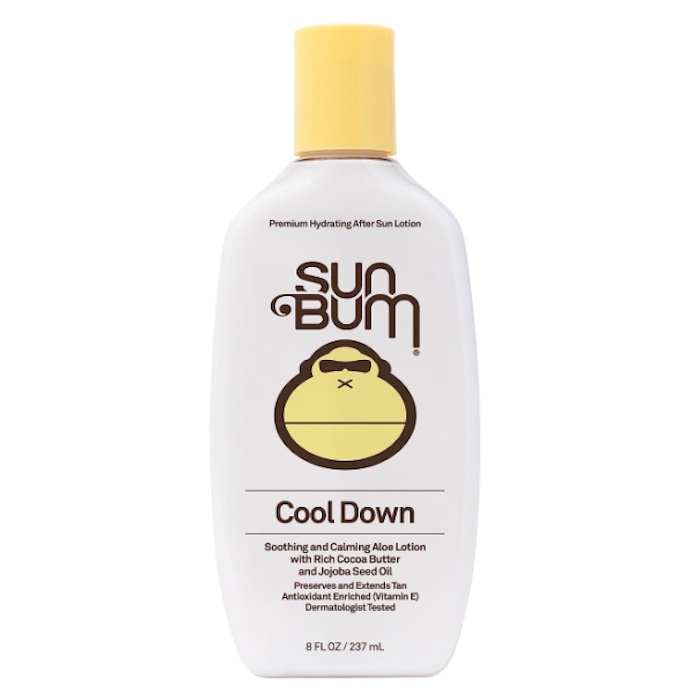
"This after-sun product contains antioxidant vitamin E, calming aloe, and hydrating cocoa butter and carries a light beachy scent," Camp says. Not only does it smell good, but it also keeps skin feeling super soft and prevents peeling. You can wear it before going out into the sun or after you get a sunburn. (Although, wearing sunscreen can hopefully prevent that.) Bonus: You can throw this in the fridge for an extra cooling effect.
Pro: Can be stored in the fridge
Con: Thick formula might take a while to absorb
Type: Lotion
Key ingredient: Aloe, vitamin E, cocoa butter, jojoba seed oil
Size: 8 oz
Customer review: "This stuff saved me when I had the worst sunburn I've ever had!! It smells amazing and really soothed my burn better than aloe. Worth the buy for sure!"
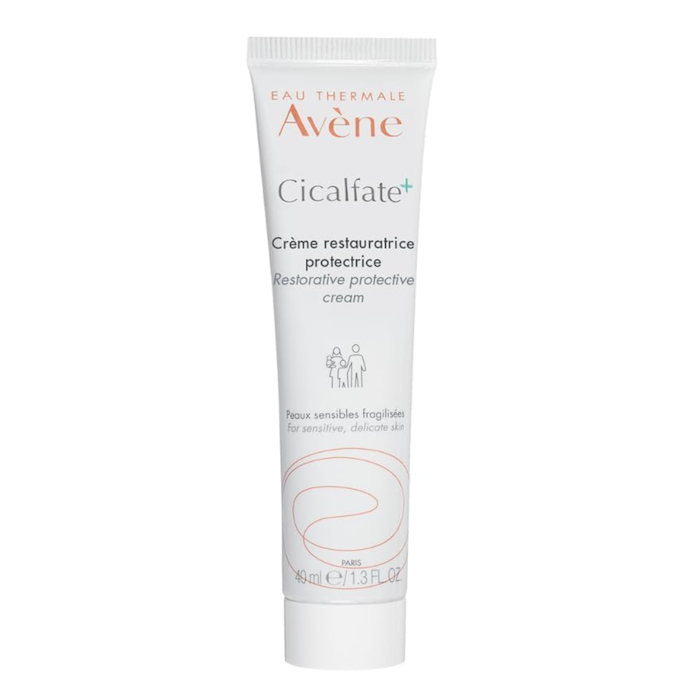
"While not marketed as an after-sun lotion, this calming moisturizer helps soothe irritated skin through its combination of nourishing ingredients and thermal spring water," Camp says. But this product isn't just for after sun exposure. It can also be used to prevent razor burn, soothe cuts and scrapes, treat dryness, and moisturize skin after superficial procedures. It truly does it all!
Pro: Safe for sensitive skin
Con: Storing in cold temperatures can mess with the formula
Type: Cream
Key ingredient: Copper-zinc sulfate complex, thermal spring water, protein-rich post-biotic
Size: 1.3 oz
Customer review: "If you have sensitive skin and are using this for a barrier cream, I cannot recommend it enough. I have spots on my face that are constantly irritated, and I put it on at night under a moisturizer to soothe my angry patches on my cheek. Anytime I want to soothe or protect my skin, this is my go-to product. The cream goes on white and stays that way because it contains zinc oxide. I use it at night or sparingly. Also of note: it does not cause acne!"
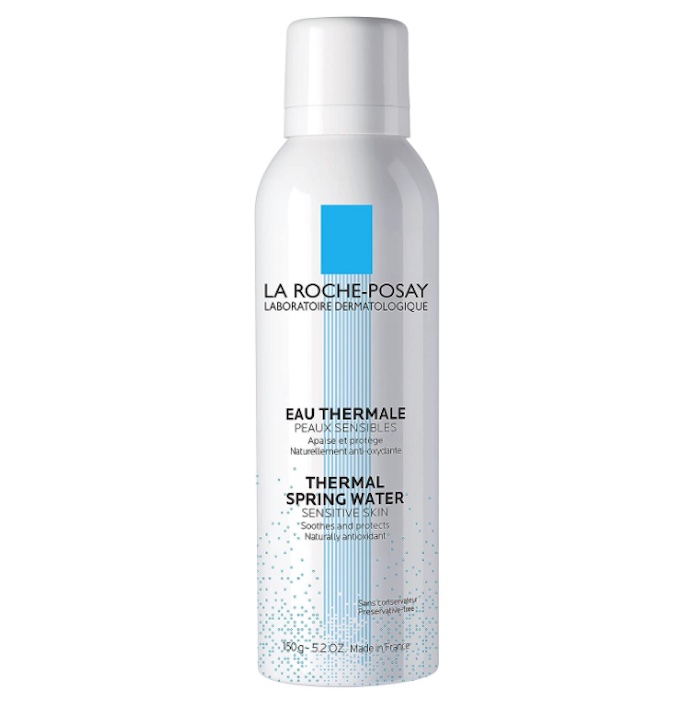
Another French pharmacy product that Camp loves, this one includes minerals and antioxidants and "keeps skin hydrated, cool, and moisturized." Garshick is also a fan, saying, "It is especially great for those with sensitive skin, as it is free of preservatives and parabens."
Pro: Can be put on after makeup
Con: Dispenser can get easily messed up
Type: Mist
Key ingredient: Mineral salts
Size: 5 oz
Customer review: "I love this spray. Very hydrating. Affordable. Lightweight. It leaves my skin feeling moisturized. Great for hot weather."
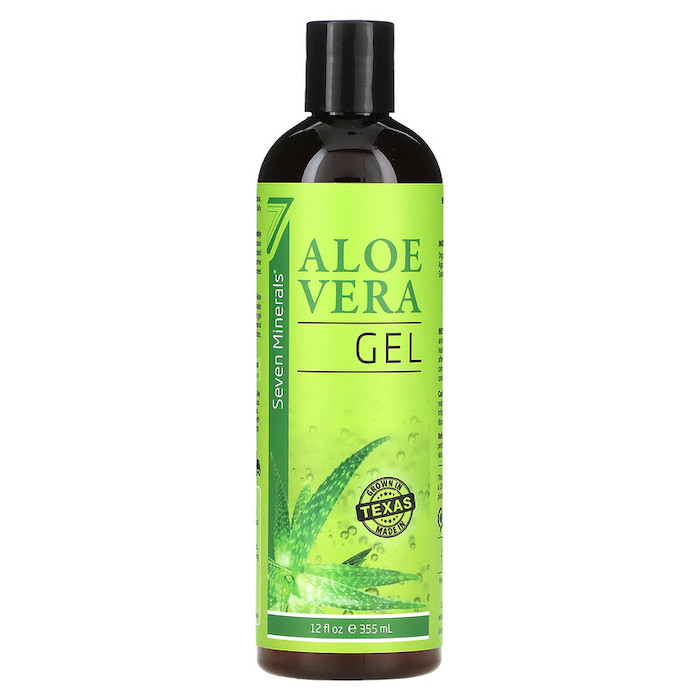
"[As this product is] made of cold-pressed, USA-grown organic aloe vera, the makers of [it] recommend testing it on the body prior to application to the face because it is made from real aloe vera juice," Camp says. It can be used as a moisturizer, a soother for itchy scalp to eliminate dandruff, and it can even be used on acne and scars. Sure, it's $20, but it contains 12 ounces worth of product, making it worth the buy.
Pro: A lot of product for the price
Con: Doesn't contain other soothing ingredients
Type: Gel
Key ingredient: Aloe, seaweed extract, citric acid
Size: 12 oz
Customer review: "My daughter and I love this aloe. We have been using it as facial lotion for three years, and it gives the result we want. We will definitely continue to use it."
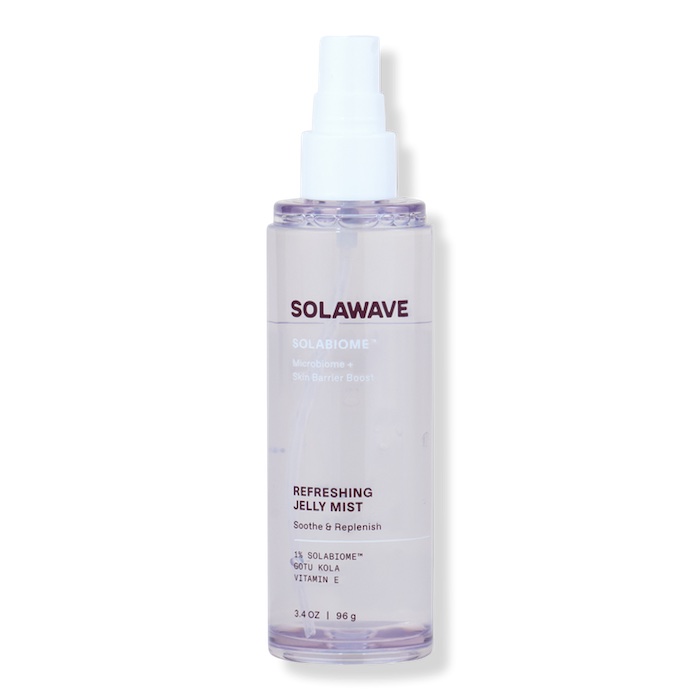
"This facial mist toner uses a blend of antioxidants and pre- and probiotics to offer a boost of hydration, making it a great option for after sun," Garshick says. "It also contains Centella asiatica, which is calming and soothing on the skin." It starts like a jelly, so don't be alarmed by the initial texture. It's still incredibly lightweight and absorbs quickly.
Pro: Refreshing and hydrating
Con: Price
Type: Mist
Key ingredient: Beta-glucan, centella asiatica, pro vitamin B5, 1% solabiome
Size: 3.4 oz
Customer review: "I don't know how I used to moisturize my skin without this. It's so easy and quick to add into your routine to keep your face extra hydrated. It has a great consistency and doesn't irritate my face. So glad to have found this product!"
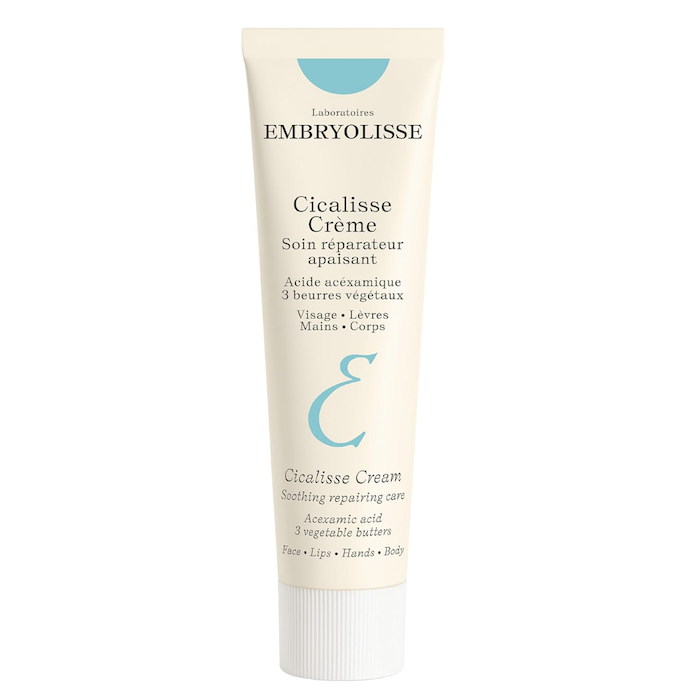
Murphy-Rose recommends this French pharmacy staple, which contains aloe, hyaluronic acid, glycerin, and vitamin E. "This rich cream helps to repair and protect the skin barrier of dry and irritated skin," she says. The fragrance-free formula is great for sensitive skin and works to repair the skin barrier.
Pro: Has a non-greasy finish, affordable
Con: Scent might be unpleasant to some
Type: Cream
Key ingredient: Aloe, hyaluronic acid, acexamic acid, glycerin, and vitamin E
Size: 1.3 oz
Customer review: "Discovered this brand a few months back. I have gone through three tube's of this stuff. I love it. You put it on and forget about it. Feels like you have nothing on at all. Skin looks great and no greasiness."
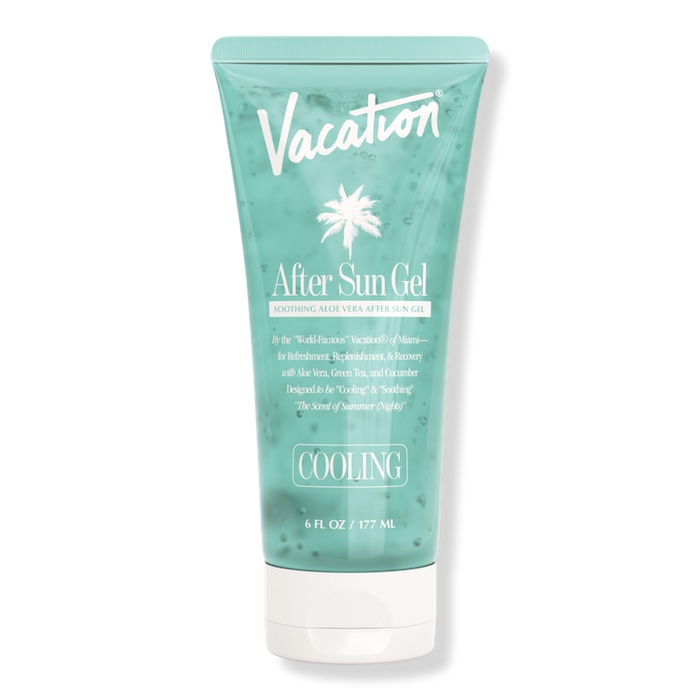
One of my favorites, this after-sun gel is so cooling and soothing on hot skin. It's alcohol- and dye-free, and it's never sticky. Consider it the modern take on old-school aloe vera gels. It contains soothing ingredients like aloe vera, cucumber, vitamin E, niacinamide, and hyaluronic acid (just to name a few).
Pro: Can be used on sun-exposed or burned skin
Con: Smell might not be as pleasant to some
Type: Gel
Key ingredient: Aloe vera, cucumber, bisabolol, vitamin E, niacinamide, glycerin, prickly pear, allantoin, hyaluronic acid and Tremella mushroom
Size: 6 oz
Customer review: "This product is good for a little too much sun exposure! I took this to Belize with me and got a little burnt, but it was nice and refreshing on my skin. ( I have sensitive skin as well, and it was nice and non irritating.) It smells great and works well!"
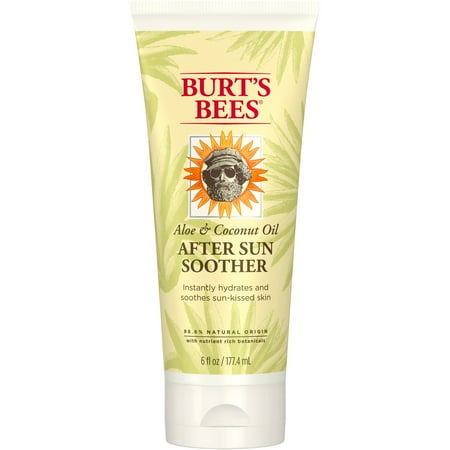
This lotion might be the easiest on the wallet on our list, but it still gets the job done. Avid Burt's Bees users will tell you firsthand that it's one of the best pharmacy brands for a reason. This formula contains soothing, skin-loving ingredients such as aloe and coconut oil. It's safe to use on your body and face for pre and post-sun exposure.
Pro: Budget friendly and a little goes a long way
Con: Smell may be too strong for some
Type: Lotion
Key ingredient: Aloe vera and coconut oil
Size: 6 oz
Customer review: "This did wonders for my sunburn I could see results after first use it cooled my sunburn down, and I slept better. Before I bought this, I couldn't sleep at all since I was burned on my back shoulders etc Burt's Bees is the best."
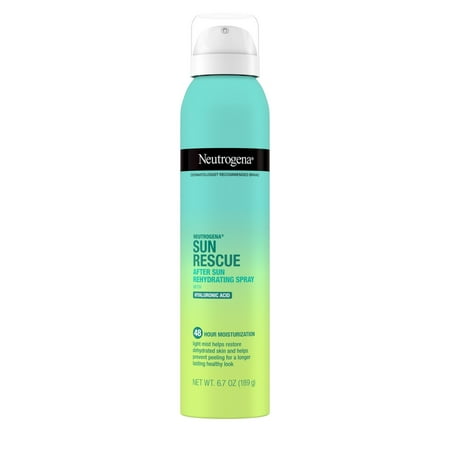
This stuff saved me from an intense back sunburn once, and I've kept a bottle on hand ever since. The lightweight, hyaluronic acid–rich formula drenches my skin in cooling hydration, and the spray nozzle makes it easy to get hard-to-reach areas. Not to mention it absorbs quickly, too.
Pro: Doesn't require you to touch sunburnt skin
Con: Doesn't prevent peeling
Type: Mist
Key ingredient: Hyaluronic acid
Size: 6.7 oz
Customer review: "I made terrible life choices at the lake last weekend and did not apply sunscreen. My back was burnt so badly. I purchased this spray and used it, I immediately felt relief. No more sting! I also like the fact that it's a spray application, and you don't have to “rub it in” on an already painful burn."
What Makes After-Sun Products Different From Other Skincare Products?
According to Murphy-Rose, what sets after-sun products apart from other skincare products is that they're intended for post-sun use and are focused on giving the skin anti-inflammatory, soothing, and/or hydrating ingredients. Yes, they can certainly be effective.
Garshick agrees. "After-sun products often help to soothe the skin and calm inflammation and discomfort that may be associated with a sunburn. In some cases, the after-sun products have some additional ingredients to provide a cooling or soothing benefit on the skin and help to reduce some inflammation," she says. "While many traditional body lotions or gel moisturizers can still be helpful, the after-sun products often have additional ingredients to help calm and repair the skin."
Camp cautions that after-sun products can't ever reverse sun damage, so proper sun protection is still critical. "It is important to point out that after-sun lotions do not reverse the negative effects of ultraviolet (UV) radiation on the skin," he says. "The sun's rays promote the formation of free oxygen radicals, which can damage cellular structures like DNA, lipids, and proteins. They also precipitate the formation of mutations in DNA that can lead to the formation of skin cancer. After-sun lotions do not correct any of these changes."
In other words, wear your sunscreen, folks, and use after-sun products when you get home. Camp says after-sun products calm and moisturize the skin after a day of extended or intense sun exposure. "After-sun lotions help address the skin changes that can occur after a long day at the beach or pool, namely dryness and sunburn. … They help restore moisture to the skin and assuage the sensitivity and heat associated with a sunburn." Because of this, he says anyone can use and benefit from after-sun products. After all, they essentially provide hydration and soothing and cooling effects on the skin.
Who Should Use After-Sun Products?
The easy answer is anyone who's experienced prolonged or intense sun exposure. Although, if you developed a sunburn, stick to lightweight and hydrating formulas. "All occlusive products like oils and ointments should be avoided in the first few days after a sunburn because they can trap heat and worsen the burn," Murphy-Rose says. She recommends using "nonsteroidal anti-inflammatory medications like ibuprofen, topical aloe vera gel, hydrocortisone cream, and cool compresses" in the early stages of sunburn.
Garshick agrees, saying, "Immediately after a sunburn, it is best to avoid thick occlusive ointments, as these can trap heat, and [it's] best to opt for lightweight formulations of creams, lotions, or gels that have soothing benefits to help calm the skin as commonly found in after-sun products. Sprays can sometimes make it easier to get to hard-to-reach areas, but ultimately, it comes down to personal preference. Once the skin becomes dry or starts to peel, it can be helpful to consider a thicker ointment such as Vaseline Healing Jelly ($15), as this works to support the skin barrier."
What Ingredients Should You Look for in an After-Sun Product?
All of the derms agree that the best after-sun products include hydrating and antioxidant-rich ingredients, which can give skin a boost after it's been exposed to the sun. "Products that contain aloe vera will be beneficial for those with sunburns," Garshick says. "Other ingredients to consider include Centella asiatica and niacinamide to calm the skin."
Camp agrees, adding that antioxidants such as vitamins C and E are critical since they have the ability to neutralize free oxygen radicals, which are unstable oxygen molecules that are formed in response to UV exposure. He also recommends ceramides to help restore the skin barrier and retain moisture and aloe (of course!) to drench the skin in much-needed hydration.
How We Chose
As with all of our buying guides at Who What Wear, we compile our edits based on original testing and expert recommendations. To decide on the best after-sun products, we tested several products on my skin after prolonged sun exposure while also leaning on my unique expertise in the beauty space as an editor. We're aware of how important the product type, key ingredients, and value for the amount of product is while making smart shopping decisions, so we made sure to list out all the helpful details. Of course, customer reviews and expert guidance are also kept in mind when compiling the list.
Why Trust Who What Wear
Since 2006, Who What Wear has been a digital fashion, beauty, and lifestyle publication and community where people can discover the latest brands, trends, and must-have products to help define and evolve their personal style. Think of Who What Wear as your most trusted style and shopping resource.
This article was published at an earlier date and has since been updated.

Kaitlyn McLintock is a Beauty Editor at Who What Wear. She has 10 years of experience in the editorial industry, having previously written for other industry-leading publications, like Byrdie, InStyle, The Zoe Report, Bustle, and others. She covers all things beauty and wellness-related, but she has a special passion for creating skincare content (whether that's writing about an innovative in-office treatment, researching the benefits of a certain ingredient, or testing the latest and greatest at-home skin device). Having lived in Los Angeles, California, and Austin, Texas, she has since relocated back to her home state, Michigan. When she's not writing, researching, or testing beauty products, she's working through an ever-growing book collection or swimming in the Great Lakes.
-
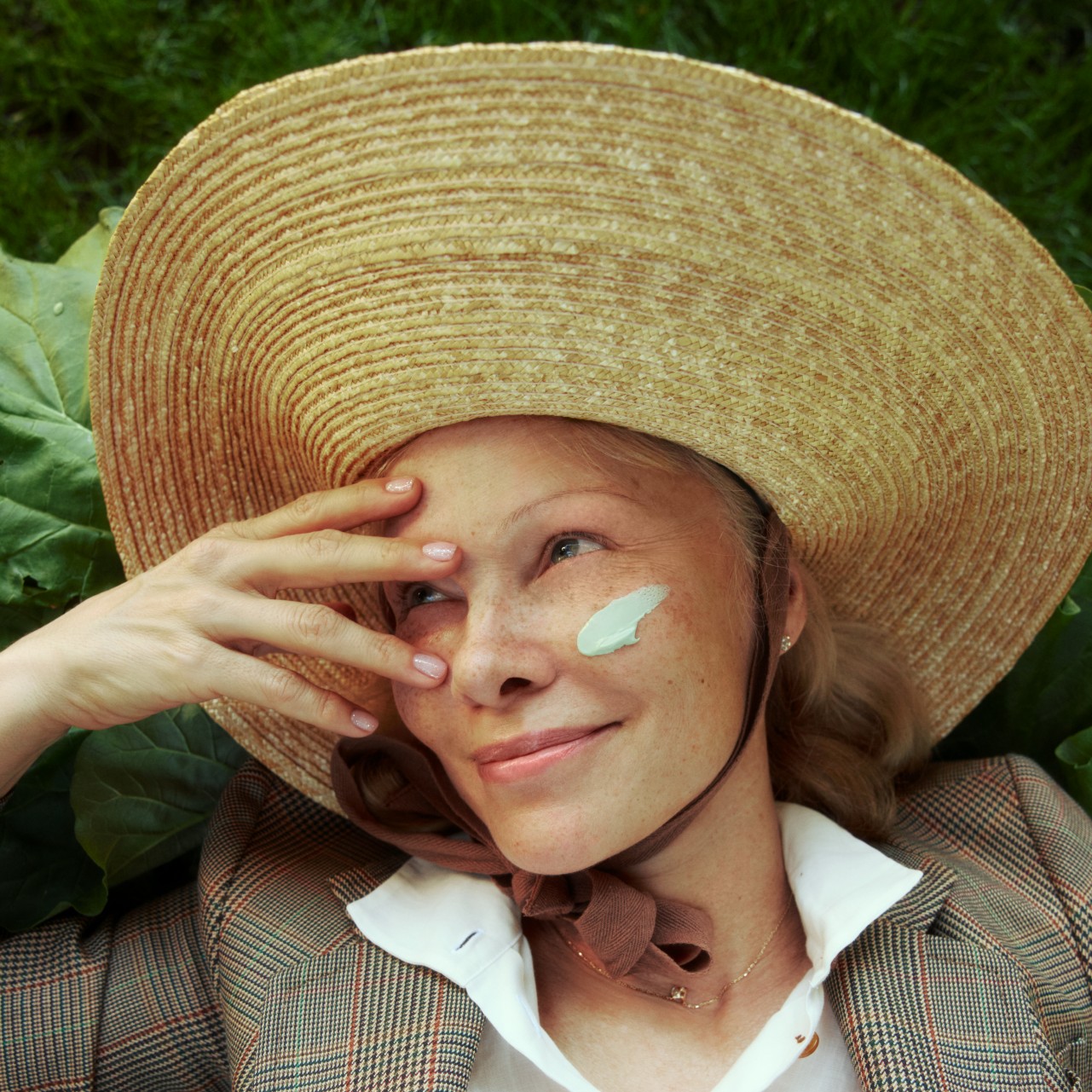 Pamela Anderson on Short-Hair Transformations, Sunspots, and Color-Correcting Without Makeup
Pamela Anderson on Short-Hair Transformations, Sunspots, and Color-Correcting Without Makeup"I really don't know what my next incarnation is."
-
 Jasmine Tookes Opened the Victoria's Secret Fashion Show With a Bump-Baring One-Piece and This Glowy Body Oil
Jasmine Tookes Opened the Victoria's Secret Fashion Show With a Bump-Baring One-Piece and This Glowy Body OilMy jaw is still on the floor, ICYWW.
-
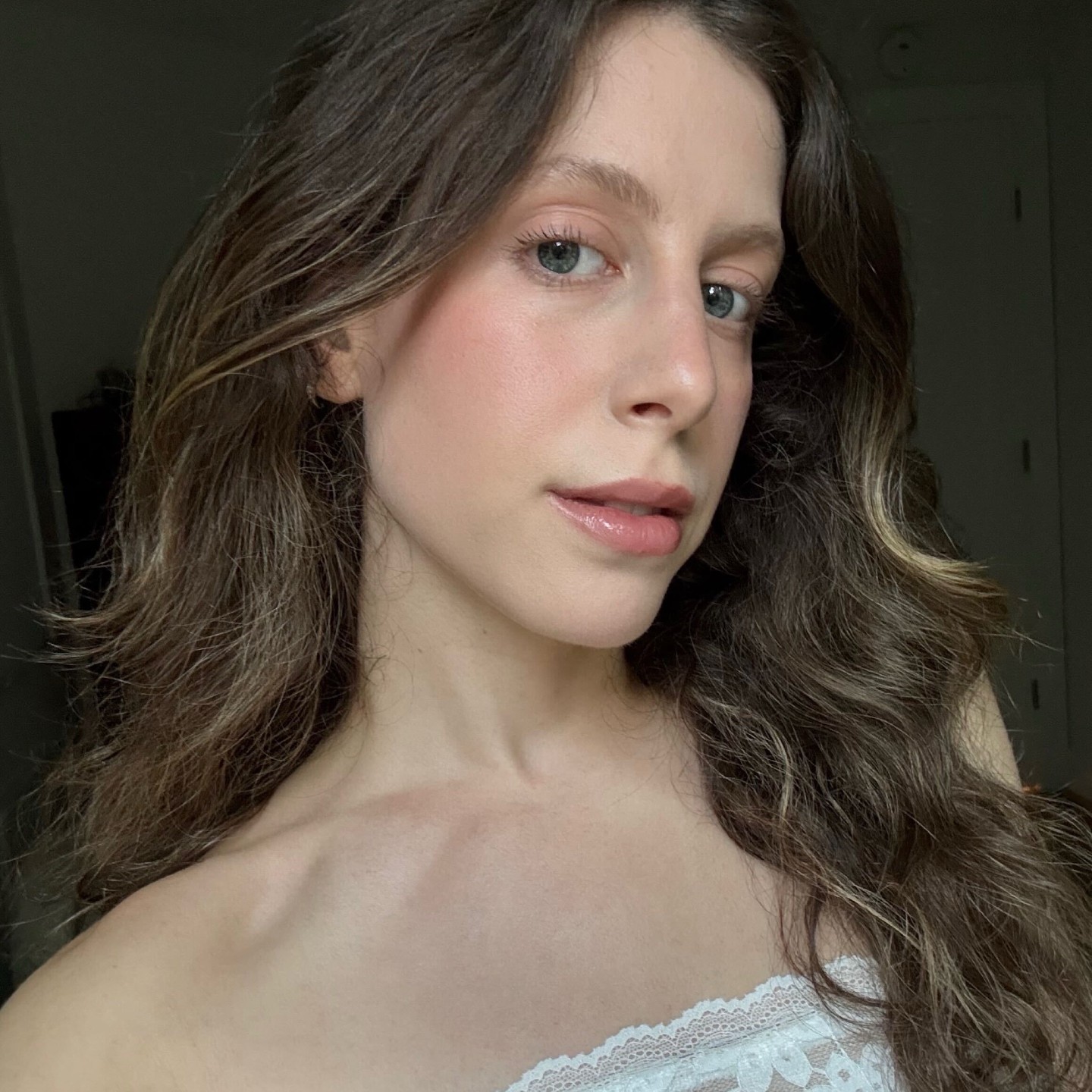 My Wedding Is in 4 Weeks—30 Beauty Products I've Been Hoarding for Glass-Like Skin and Liquid Hair
My Wedding Is in 4 Weeks—30 Beauty Products I've Been Hoarding for Glass-Like Skin and Liquid HairThe good, the great, and the downright miraculous.
-
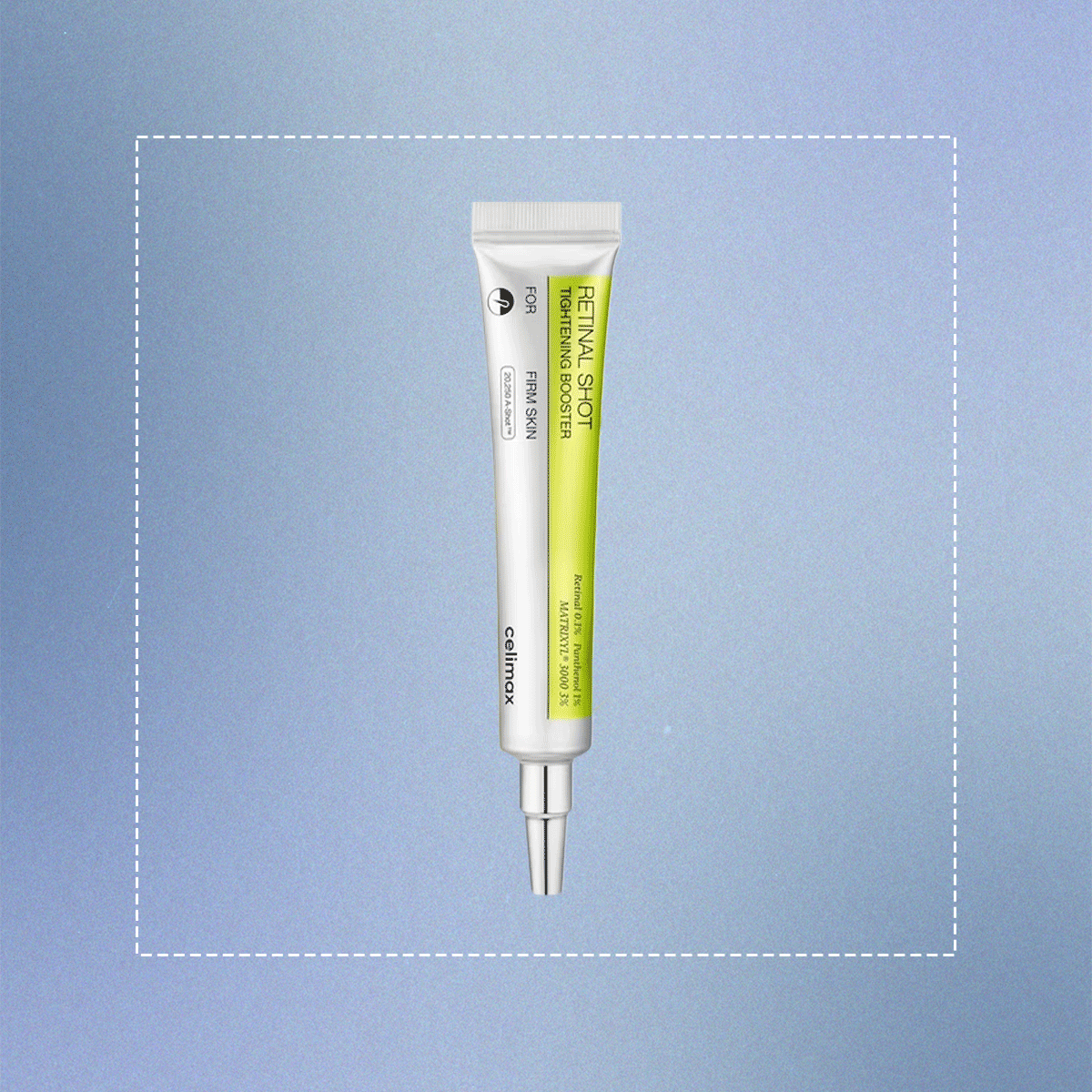 Amazon's New Korean Beauty Section Is Incredible—18 Add-to-Cart Items I Won't Shut Up About
Amazon's New Korean Beauty Section Is Incredible—18 Add-to-Cart Items I Won't Shut Up AboutHighly effective skin-enhancement, right this way.
-
 I'm a Laser Dermatologist—Here's What Most People Don't Tell You About LED Light Therapy for Skin
I'm a Laser Dermatologist—Here's What Most People Don't Tell You About LED Light Therapy for SkinPlus the underrated tool that works wonders.
-
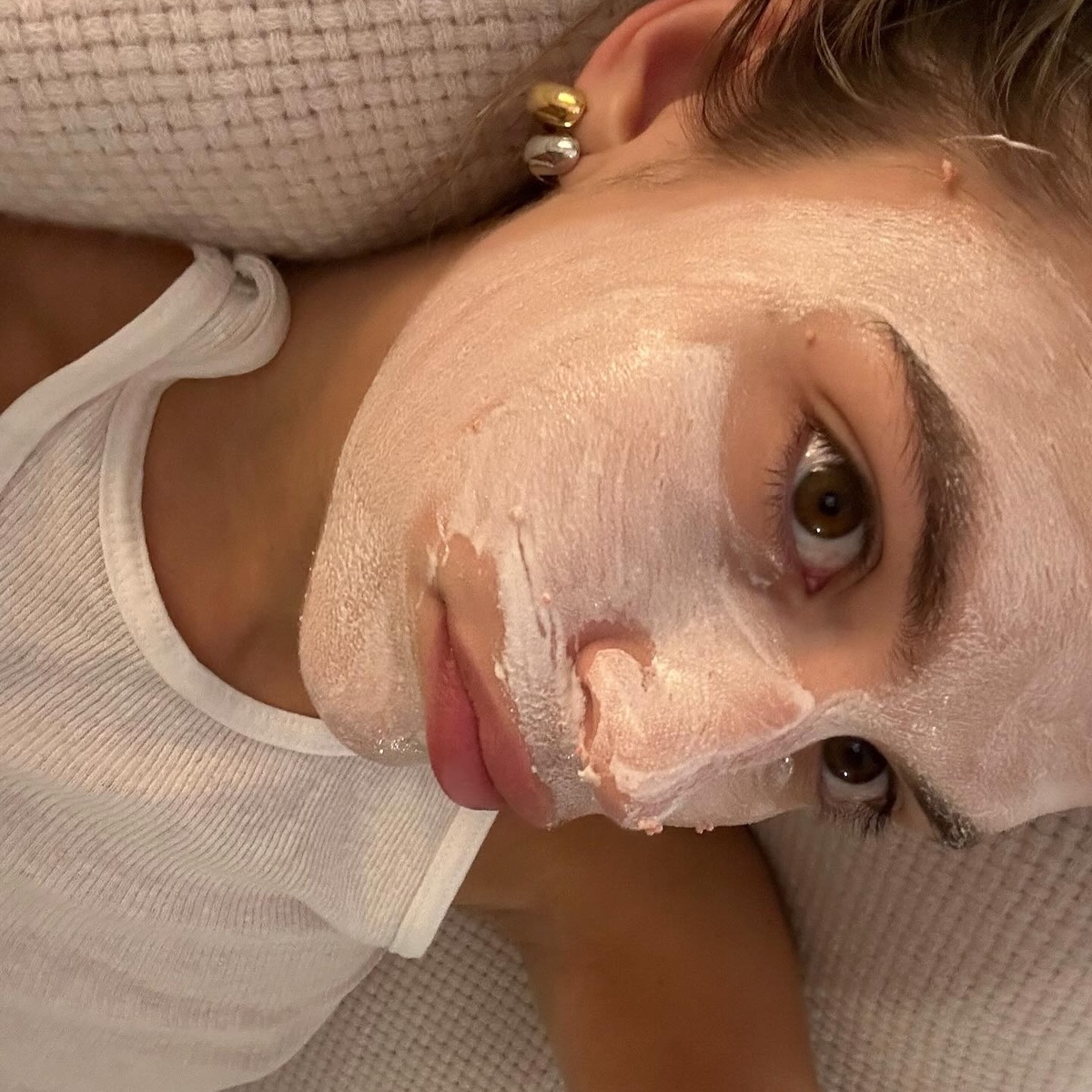 Me and Amazon? We Go Way Back—These Are the 24 On-Sale Skincare Products That Impress Me the Most
Me and Amazon? We Go Way Back—These Are the 24 On-Sale Skincare Products That Impress Me the MostFrom high-tech Korean products to iconic French pharmacy ones.
-
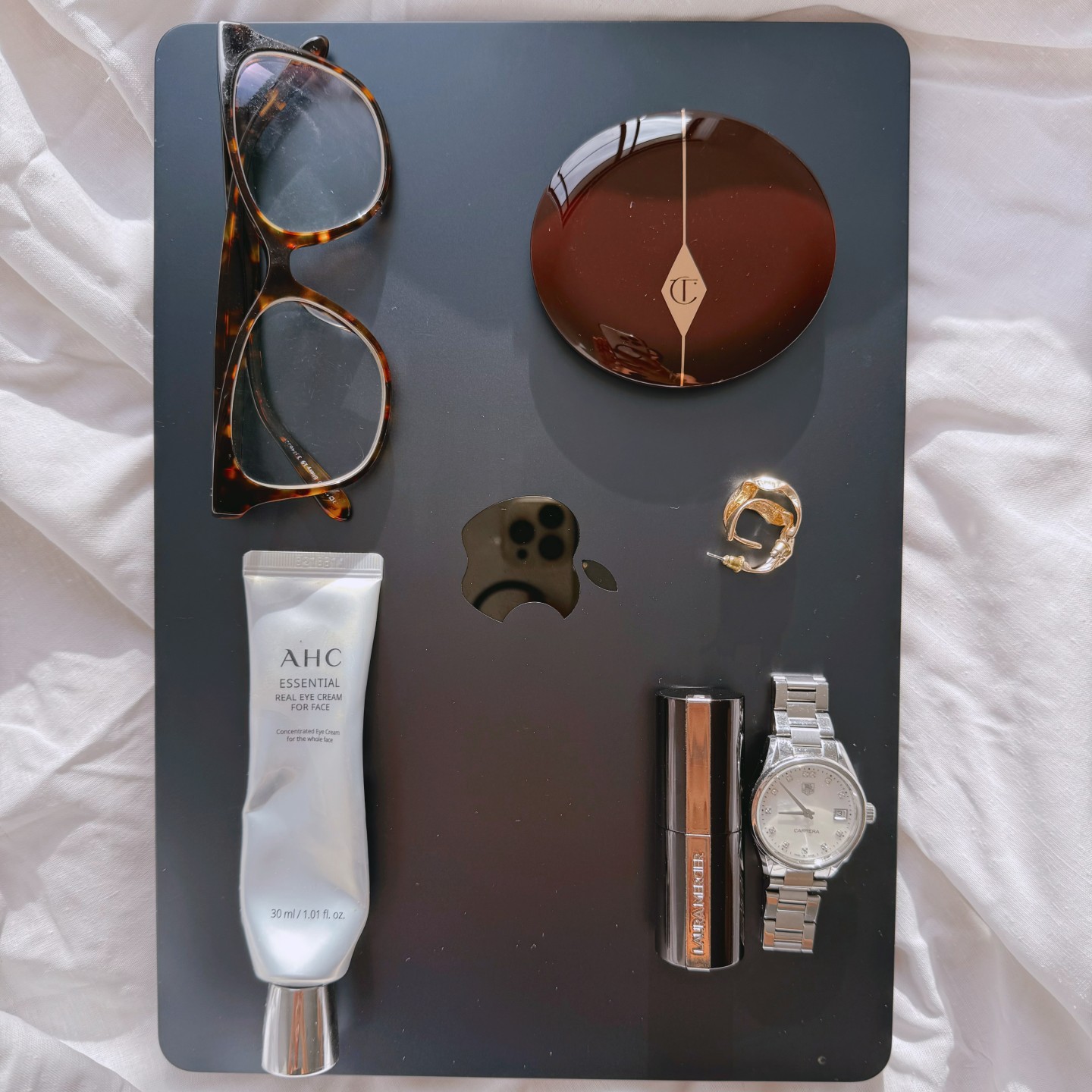 I Test Beauty Products for a Living—These Are the Only 22 You Need from Amazon’s Big Deal Days
I Test Beauty Products for a Living—These Are the Only 22 You Need from Amazon’s Big Deal DaysOn your mark...
-
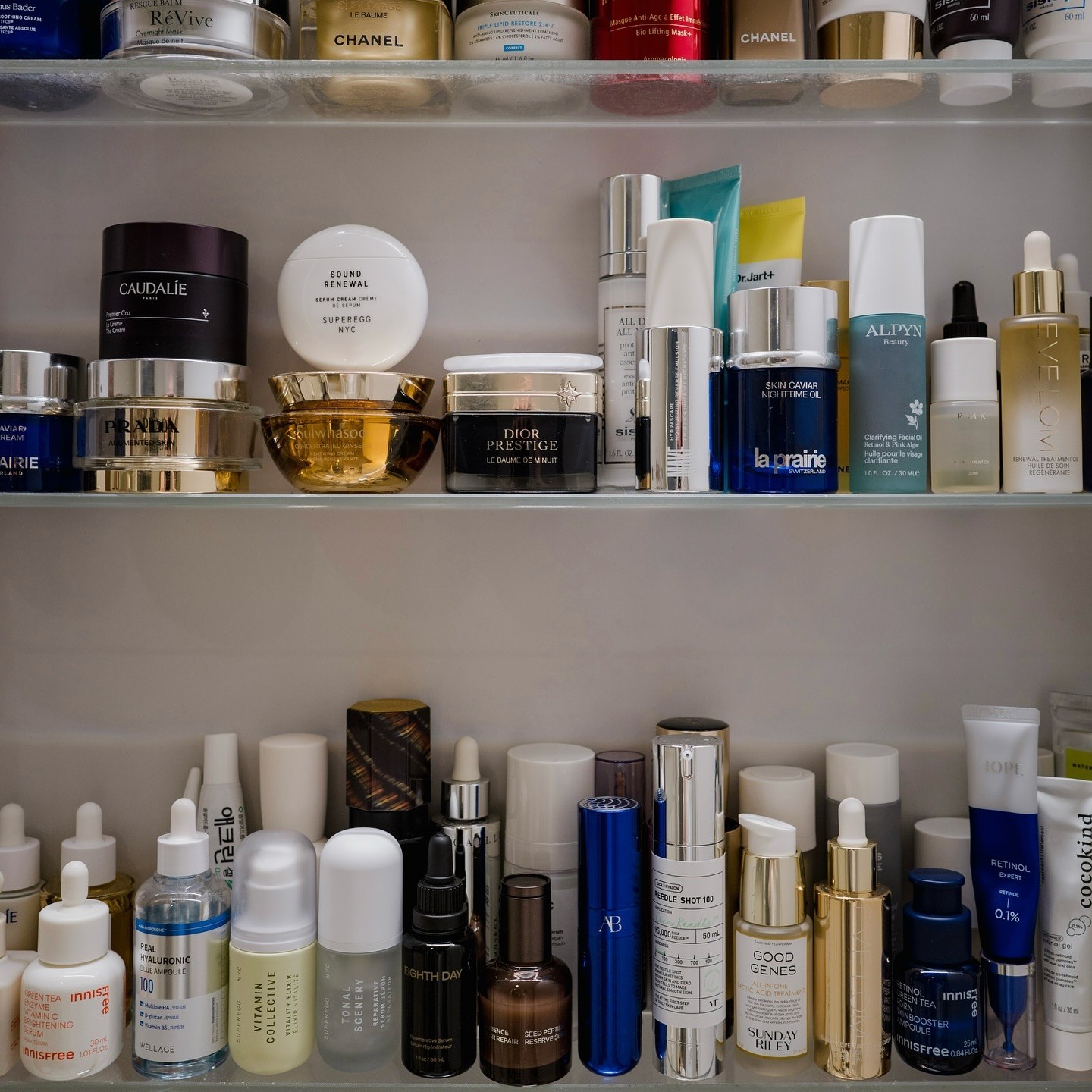 If You're Going to Buy Luxury Skincare in 2025, I'd Suggest Splurging on This, This, and This
If You're Going to Buy Luxury Skincare in 2025, I'd Suggest Splurging on This, This, and ThisThe ultimate worth-it buys.
